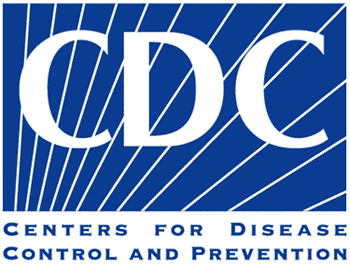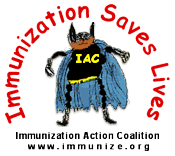
Rabies Information and Immunization
RABIES INFORMATION
CENTER FOR DISEASE CONTROL AND PREVENTION

"Rabies is a preventable viral disease of mammals most often transmitted through the bite of a rabid animal. The vast majority of rabies cases reported to the Centers for Disease Control and Prevention (CDC) each year occur in wild animals like raccoons, skunks, bats, and foxes. The rabies virus infects the central nervous system, ultimately causing disease in the brain and death."

Rabies and Kids!
An interactive and fun site for kids filled with facts about rabies.
IMMUNIZATION ACTION COALITION
This site contains comprehensive information about rabies, or search for information about specific disease and the vaccine that prevents it. Presented by the Immunization Action Coalition, a non-profit organization working to increase immunization rates and prevent disease by creating and distributing educational materials for health professionals and the public that enhance the delivery of safe and effective immunization services.
RABIES VACCINATION FOR YOUR PET
The most current American Animal Hospital Association, Cornell University, and American Association of Feline Practitioners Vaccine Advisory Panel vaccine recommendations for all vaccinations, including rabies, are available at COMPASSIONATE CARE VETERINARY HOSPITAL OF MANLIUS. Please contact us if you have questions about current vaccine recommendations for cats and dogs.
New York State law requires rabies vaccinations for all cats, dogs and domesticated ferrets!
All counties (excluding New York City counties) are required to provide a low cost vaccination clinic every four months. Contact your county health department for the schedule in your area. However, while rabies clinics offer low cost and protective rabies vaccination, they unfortunately do not follow the current vaccine recommendations from advisory organizations for the immunization of dogs and cats.
Rabies clinics provide rabies vaccinations from multi-dose vials containing adjuvant. An adjuvant is routinely added to killed (inactivated) vaccines, like rabies vaccines. The adjuvant stimulates an inflammatory reaction to enhance an animal's immune systems response to the disease agent in the vaccine. The inflammatory response is necessary for the animal's protective immunity to develop. Unfortunately the adjuvant is also responsible for the excessive inflammatory response that causes the undesirable rabies vaccine reactions.
- One concern about multi-dose rabies vaccine vials is that studies have demonstrated that no matter how well the vials are shaken, the vaccine is not completely mixed, allowing different amounts of adjuvant (and probably antigen of the vaccine disease agent) being distributed into each dose. Some animals get large amounts of adjuvant and are more likely to get excessive inflammatory responses, causing unwanted vaccine reactions in the most susceptible pets.
- There is also an increased risk of bacterial contamination of the vaccine vials using multi-dose vials since the vials are entered multiple times to draw out the individual doses.
- Furthermore, cats especially should not receive vaccine with adjuvant. Cats are at increased risk of developing cancerous tumors (inflammation-associated sarcomas) secondary to the inflammation produced by vaccinations containing adjuvant.
Contact COMPASSIONATE CARE VETERINARY HOSPITAL regarding current veterinary medical immunization recommendations, as well as with any questions about your pet's rabies vaccination or other immunization needs.
RABIES CLINIC INFORMATION
Contact your COUNTY HEALTH DEPARTMENT for additional rabies clinic information in your area.

What Makes Us Stand Out?
-
High-Quality Veterinary Medical Care Since 2008
-
Involved Caring For & Educating Our Community
-
Rave Reviews from Our Clients
-
Educational Approach to Pet Care
-
Continuity of Care
-
Conscientious & Comprehensive Exams






